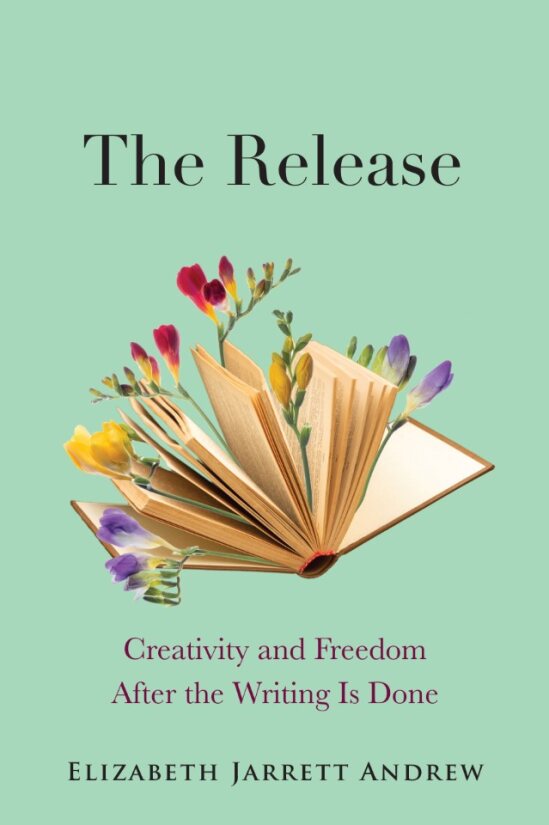In preparing to launch The Release this October, I’m dizzied by the ironies of releasing a book about releasing creative work. If ever there were an opportunity to heed my own advice! So between now and then I thought I’d share some excerpts, in part to give you a foretaste but mostly to remind myself. The Release shares spiritual practices to help writers stay grounded and creative after a project is done. Goodness knows, that’s exactly what I need now.
Here’s a passage from an early chapter on hazards during the release:
Sadly, the exhilaration we feel on finishing a project too often crashes into what Charles Salzberg called “postwritum depression.” We’ve left behind the encompassing, cherished world we’ve engendered as well as our established patterns for entering it. If we’re fortunate enough to publish, our initial elation is frequently followed by insecurity and emptiness. After memoirist Jessica Berger Gross’s euphoric book launch and tour, she reflected, “I felt despondent. Rudderless. Tired. Inexplicably, I felt like a failure. Rather than feeling gratitude for what had happened, I obsessed over what hadn’t. I judged myself for the brass rings I hadn’t grabbed.” She titled her essay about this disappointment, “I Just Published a Book: Why Am I Depressed?” I remember Mark Doty describing the high of receiving an NEA grant followed by three days of punishing self-doubt. Harper Lee was a hundred pages into her next novel when the success of To Kill a Mockingbird disrupted her permanently. “When you’re at the top,” she told her cousin, “there’s only one way to go.” For an up-and-coming author, the blessing of a multi-book contract becomes a curse as soon as the weighty expectations of publisher and public enter the writing studio. As musician and performance artist Amanda Palmer says in The Art of Asking, “Outside approval can make The Fraud Police louder: it’s more like fighting them in high court instead of in a back alley with your fists.”
The trouble is, no external results will quench our longing. No one can validate our creative efforts. No kudos can assure us we’ve “arrived.” Martha Graham biographer Agnes de Mille tells of a conversation that’s worth relating here. Herself a choreographer, De Mille was dispirited; she believed her best work had been ignored by critics while her work on Oklahoma!, which she felt was only “fairly good,” was a “flamboyant” success. De Mille told Graham that she saw only her work’s “ineptitude, inorganic flaws, and crudities.”
“I am not pleased or satisfied,” she said.
“No artist is pleased,” Graham retorted.
“But then there is no satisfaction?”
“No satisfaction whatever at any time,” Graham said. “There is only a queer divine dissatisfaction, a blessed unrest that keeps us marching and makes us more alive than the others.”
Nothing—not publication, not great sales numbers, not stature, not being able to pay the bills, not even readers’ gratitude or public conversations with presidents or being anthologized—will make this “queer divine dissatisfaction,” this “blessed unrest,” go away. Why? Because creative longing is a fundamental part of (I’d argue) everyone’s humanity. It is right and good. It fuels us. It urges us to seek union. At its core, this longing is holy. Only when we attach it to specific outcomes does it become destructive.
There will be no ultimate validation of our creative efforts, no conclusive satisfaction. When we enter the release looking to satiate our longing, we tilt at windmills. “The only real cure for post book depression?” writes Berger Gross; “Start writing something new.” Creative fulfillment comes from creative engagement. That’s it. For artists, creativity is our means and our ends.
– Elizabeth Jarrett Andrew
